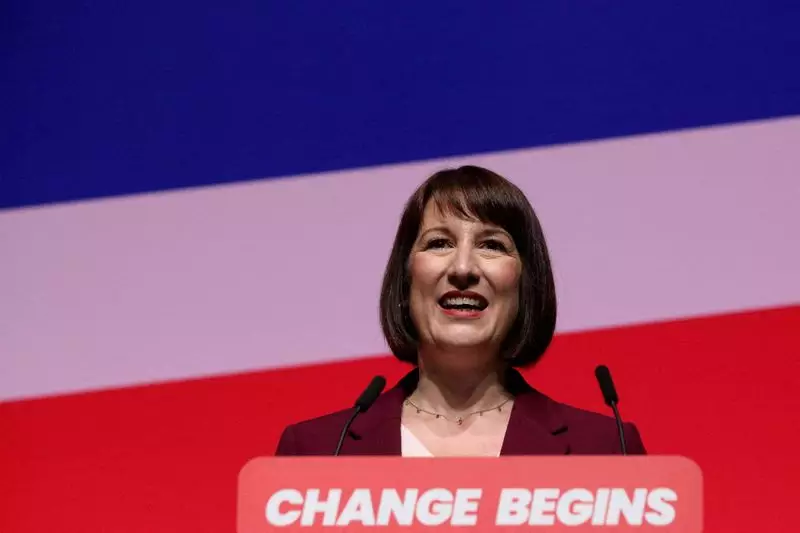As the British finance minister, Rachel Reeves stands at a pivotal moment in her nation’s economic journey. Preparing to unveil a budget that marks a significant shift after years of Labour Party absence from power, Reeves intends to breathe new life into the stagnant economic climate. Her upcoming trip to Washington for the International Monetary Fund (IMF) and World Bank meetings presents a vital platform not only for international dialogue but to strategically position Britain’s fiscal policy ahead of her budget announcement.
Scheduled for presentation in the coming week, Reeves’ budget aims to generate approximately £40 billion (around $52 billion). This ambitious target will likely be achieved through a combination of tax hikes and minimal reductions in public expenditure. The urgency behind these measures stems from the fiscal gap left by the previous administration, as the nation grapples with the pressing need for enhanced public services and sustainable financial stability.
While discussing her strategy, Reeves highlighted that this budget would serve as a “reset” for the economy, emphasizing the importance of establishing a strong foundation for future growth. This statement underlines not just a tactical response to pre-existing budgetary deficiencies but also a forward-looking perspective that prioritizes resilience in Britain’s economic framework.
During her engagement with international partners, Reeves intends to convey a clear message: Britain is ready to play an active role on the global stage. In her own words, she stated, “I’ll be in Washington to tell the world that our upcoming Budget will be a reset for our economy.” This articulation signifies a departure from mere domestic concerns to embracing broader international responsibilities, where issues like the crises in the Middle East and Ukraine are of paramount importance.
Additionally, Britain’s recent commitment to extend a $3 billion loan to Ukraine illustrates its dedication to international solidarity, particularly in geopolitical conflicts that have weighed heavily on global stability. This financial support, backed by contributions from G7 nations and utilizing frozen Russian assets, signifies the intertwining of financial diplomacy and national interests.
A core aspect of Reeves’ approach involves potential modifications to the fiscal rules that currently restrict government borrowing. As reported by various sources, including The Guardian, there may be an upcoming shift toward a more flexible interpretation of domestic budget constraints, allowing for greater financial maneuverability. Specifically, Reeves is considering the inclusion of a measure known as public sector net financial liabilities, which encompasses a broader range of assets that can be factored into the government’s fiscal calculations.
This proposed shift could yield an additional £50 billion of borrowing capacity, effectively expanding the government’s ability to invest in vital public services without compromising fiscal responsibility. Critics may argue that such changes could lead to heightened public debt; however, proponents assert that the long-term benefits of investing in infrastructure and services can catalyze economic growth.
The intentions of Reeves and her team resonate not only on the domestic front but also within the context of global economic discourse. The IMF’s recent upgrade of Britain’s growth forecast compared to other G7 countries reflects optimism about the British economy’s recovery potential. However, with growth projections set at a modest 1.1% for 2024 and 1.5% for 2025, it is clear that a delicate balance must be struck between stimulating growth and managing public debt levels.
Furthermore, Reeves has indicated her ongoing drive to enhance development financing for underprivileged nations. By encouraging richer G20 nations to foster transparency regarding their debt, she hopes to fulfill the United Nations’ sustainable development goals while demonstrating Britain’s leadership in international financial cooperation.
Rachel Reeves’ upcoming budget serves as a crucible for transformation within the British economy. Her ambitious plans, aligned with international collaboration, provide a promising but challenging framework for addressing the pressing financial issues facing her country. As she prepares to advocate for a robust fiscal strategy, the stakes are high, not just for London but for Britain’s role in the global economy. The path forward, marked by careful balancing of investment and fiscal prudence, could redefine not only the economic landscape of the United Kingdom but also its position in international financial dealings.

